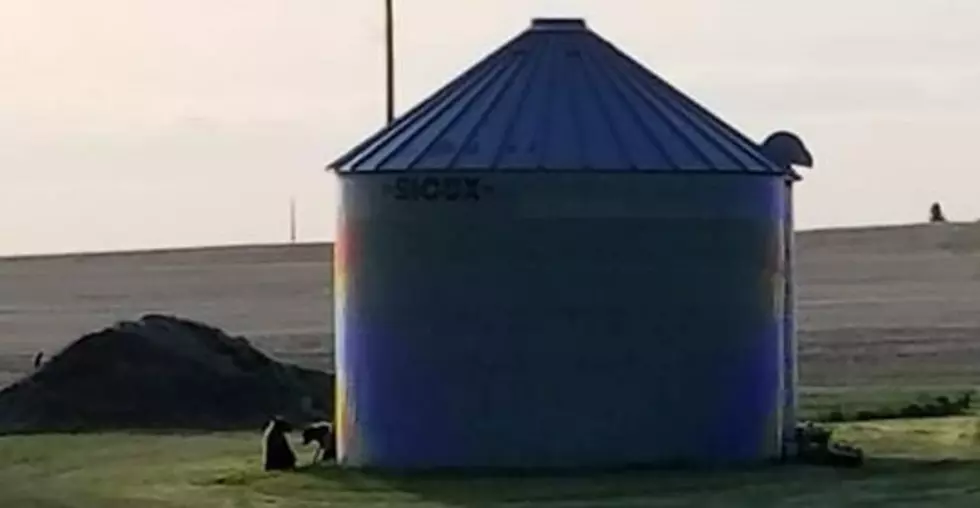
Republican bill would give Montanans greater latitude in killing grizzly bears
A Republican lawmaker from Ethridge, just east of the Rocky Mountain Front, introduced a bill Thursday that aims to broaden the circumstances under which people can legally kill grizzly bears in Montana.
Current law says it’s legal to kill or attempt to kill a grizzly bear in self-defense, or if the bear is “in the act of attacking or killing” livestock. Senate Bill 98 would allow the killing of grizzlies that are “threatening to kill” people or livestock.
Sen. Bruce “Butch” Gillespie said that when it comes to grizzly management, Montana is “stuck in a time capsule,” and that grizzless should have been delisted from endangered species protections years ago. “They long ago hit the target of 300 [grizzlies]. Today we’re probably looking at 1,800 to 2,000. That means there are many times more conflicts [and] attacks — life-and-death conflicts.”
Speaking on behalf of the bill at a hearing before the Senate Agriculture, Livestock and Irrigation Committee, five agricultural producers recounted issues and encounters they’ve had with grizzlies. They outlined attempts they’ve made to decrease the number of grizzlies on their properties with mixed results, and expressed frustration with current grizzly management.
Calon Yeager, a rancher from Choteau, said he’s found as many as nine grizzlies getting into grain on his ranch. He now has an electric fence around his yard that was installed by Montana Fish, Wildlife and Parks. He said that although it’s generally effective, every once in a while a smart bear finds a way in.
Yeager said he worries about the ranch hands who come to work in the early morning hours. “If those guys have to shoo a bear or shoot a bear, I would like them to be protected by this law,” he said.
He added that he puts a lot of faith in ranchers to exercise discretion as stewards of the land. “I don’t feel like we’re going to run around with guns and pitchforks and knives trying to chase out all of the grizzly bears,” he said. “There’s a circle of life, and I think bears play a part in that.”
Shanun Rammell, another SB 98 proponent from Choteau, called current grizzly management “unethical” and recounted being mauled by a young grizzly who’d gotten into a grain shed near his property last July. He’s incurred significant medical debt as a result of the encounter, and said it’s changed the way he moves around on his land with his wife.
“I will never again go on the morning walk with my lovely one,” he said.
Rammell’s wife, Jamie, said she still doesn’t feel safe on her property, even though they’ve installed an electric fence encompassing eight acres surrounding their house, purchased two livestock guard dogs and installed cameras outside their home.
“I don’t want to be burying my children,” she said. “[Grizzlies] need to be afraid again like black bears are.”
Ranchers also cited the economic losses they’ve suffered due to grizzly conflicts. Dave McEwen, a rancher from Galata, north of Great Falls, said he’s had 75 lambs killed by grizzlies. He said while he recognizes that SB 98 would not have prevented that particular loss, he “should not have to think about the consequences to perform the duty that needs to be done.”
“Agriculture is doing a hell of a job growing bears,” he added. “They found garbanzo beans, they like barley, they really like pigs, and they’re working on my sheep and cows.”
Referencing the argument that laws like SB 98 would prevent delisting of the animals, McEwen said, “they’ve hung that carrot in front of us for how many years?”
Several bill opponents spoke about delisting in their arguments before the committee, saying it’s unlikely the U.S. Fish and Wildlife Service would remove federal protections with laws like SB 98 on the books in Montana. (Before USFWS will delist an endangered species, states must demonstrate they have adequate regulatory mechanisms in place.)
Speaking on behalf of a variety of conservation organizations, opponents also focused on the discrepancy the measure would create between federal and state law.
“This bill could give a false impression to some people that they can kill grizzly bears [in defense of livestock] when they cannot under federal law,” said Montana Wildlife Federation Conservation Director Nick Gevock. “They would still face federal prosecution.”
Gevock, who served on former Gov. Steve Bullock’s Grizzly Bear Advisory Council, also pointed out that it’s currently legal under federal law to kill a bear in self-defense.
Gevock outlined efforts that have been proven effective in mitigating the conflicts between humans and grizzlies. Such changes include picking up carcasses, fencing off attractants like beehives and calving yards, and using range riders to establish more of a human presence on the landscape. He said bear conflicts in the Blackfoot Valley have dropped 93% over the last 20 years due to these measures.
Speaking on behalf of the Montana Audubon Society, Carmen Borchelt characterized grizzly management as a “complex and patient endeavor,” and said she’s concerned that Gillespie’s proposal wouldn’t select for problem bears.
Sen. Kenneth Bogner, R-Miles City, asked Gillespie if he’d be receptive to adding an amendment to repeal the measure in the event of grizzly delisting to address the potential for USFWS to postpone delisting on account of SB 98.
Gillespie said he’d have to speak with some people about it first, but added, “on the surface, I kind of like the idea.”
No executive action was taken on the measure Thursday.
This story originally appeared online at Montana Free Press and is republished here by permission.
